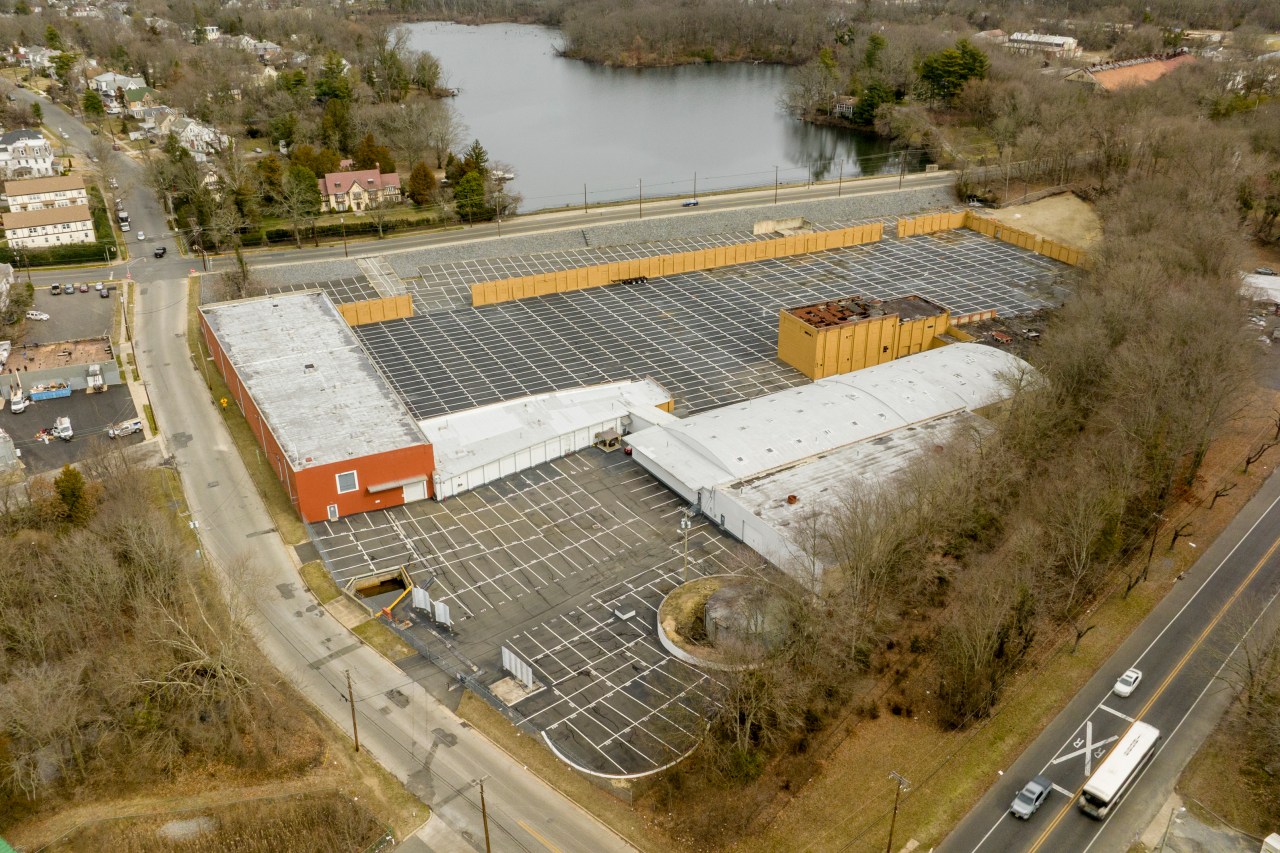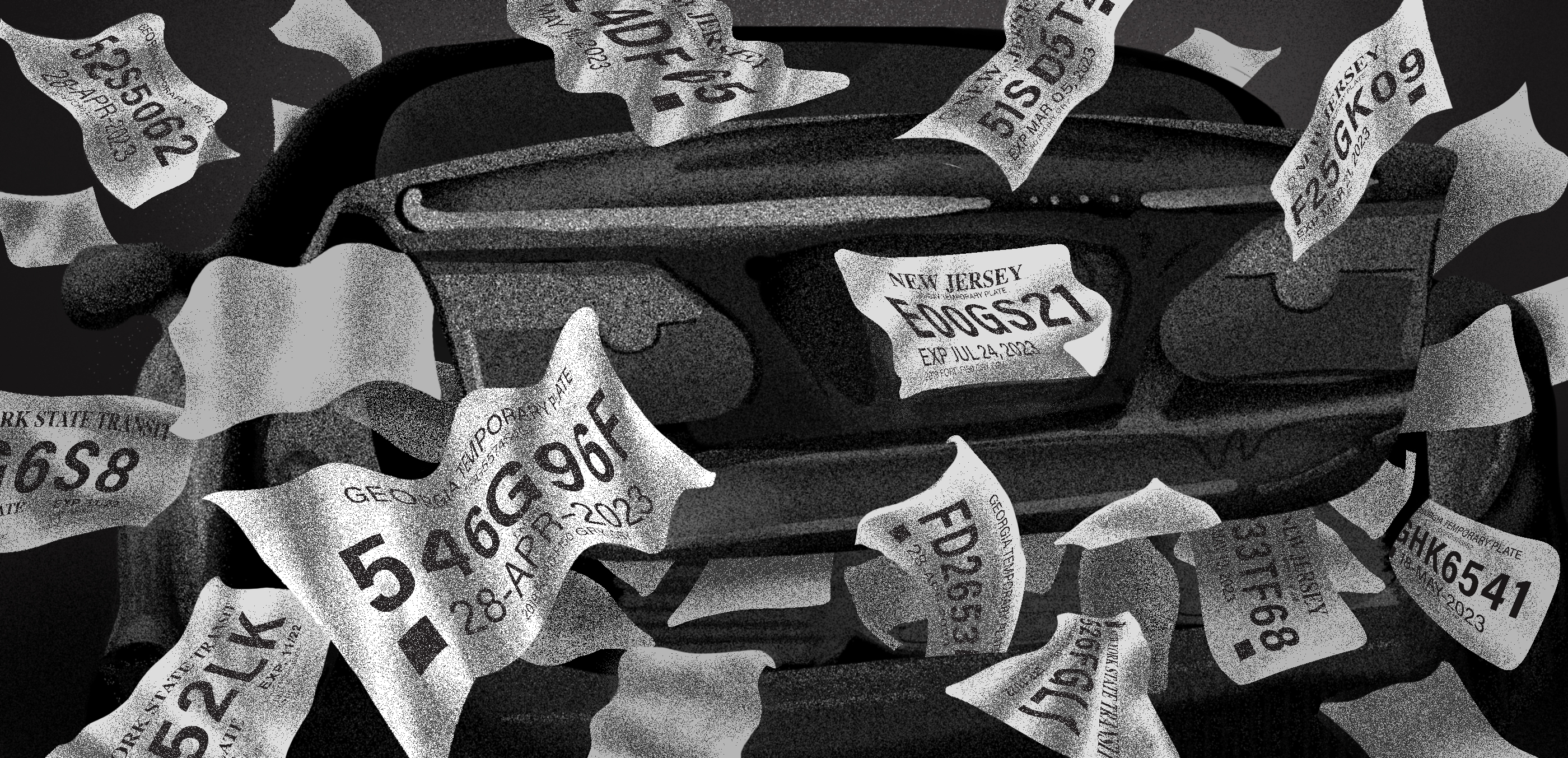The New Jersey Motor Vehicle Commission has proposed significant reforms to used car industry regulations that would aid its fight against temporary license plate fraud and go after properties where dozens of dealers have been caught violating temp tag regulations.
The proposal, which follows a Streetsblog investigation into the black market for so-called ghost tags, would be the most sweeping revision of the state's dealer regulations in more than a decade, and could threaten the continued existence of hundreds of used car dealerships and property management companies, according to industry experts and stakeholders.
"It's a major effort," said C. Richard Kamin, the former head of the commission under its previous name, the Division of Motor Vehicles. "It clearly is an effort to put several people out of business."
Commission spokesmen William Connolly and Jim Hooker declined to comment on the proposed changes or answer any questions about them.
The pending rules would explicitly empower the commission to immediately suspend a dealer's license if the commission suspected the dealer was fraudulently issuing temp tags, and clarify that the commission can inspect dealers' temp tag records at any time during business hours.
Streetsblog found a large underground economy for such tags, which dealers have sold illegally to drivers who use them to conceal their identity and skirt accountability on the road. The problem has been acute in New Jersey, Streetsblog reported, because loose state laws and regulations have made it relatively easy to obtain used car dealership credentials and to print official new Jersey temp tags using fake information.
While the commission already has suspended numerous dealer licenses over temp tag fraud, the proposed rules changes would bolster its ability to go after such fraudsters, according to Jim Appleton, president of the New Jersey Coalition of Automotive Retailers, which represents new car dealers in the state.
"I laud the effort to strengthen and clarify their enforcement ability in this area," Appleton said. "It'll go a long way to cleaning up the problem."
But the changes include far more significant reforms as well. Under the proposed rules, if a used car dealership is located in a building that also houses other businesses, the dealership must have its own "exterior" entrance and walls that extend "continuously from the foundation to or through the roof."
While those revisions appear minor, they may represent an existential threat to a network of warehouses and office buildings across the state that each serves as the official business address of dozens or even hundreds of used car dealers. The properties are known as multi-dealer locations, or MDLs. In many of them, the dealerships occupy small offices accessible only by interior hallways. And in at least one MDL, dealer offices are separated by cubicle-like walls that do not extend to the ceiling. Under the proposed regulations, those dealerships would suddenly be out of compliance, Kamin, Appleton and other observers said.
Some of the MDLs have been major sites of temporary license plate fraud, Streetsblog found. Reviewing disciplinary letters obtained through records requests, Streetsblog identified 75 New jersey used car dealers who were caught violating temp tag regulations in recent years. Fifty-three of them were based at MDLs.
The largest MDL is in the southern New Jersey city of Bridgeton. More than 300 used car dealers were registered to the address in 2021, and they issued more than 137,000 temp tags that year, making the location the most bustling site of used car sales in the entire state — at least on paper. But a gate blocks the entrance, few people ever appear to be coming or going, and the vast parking lot to display cars always seems to be empty. At least 28 Bridgeton dealers have been caught violating temp tag regulations in recent years.

Problems at the Bridgeton compound and other MDLs were first highlighted by the New Jersey State Commission of Investigation, which found MDL dealers defrauding banks, accumulating millions of dollars in unpaid taxes and hiding mechanical defects in cars they sold. The SCI also found that abuses at the Bridgeton compound were overlooked by some at the MVC, with agency officials waiving penalties and site inspections for Bridgeton dealers and otherwise impeding efforts to regulate the facility. The compound owners even hired Kamin, the former commissioner, to lobby his old agency on behalf of the facility and its dealers.
Kathy Riley, a spokeswoman for the investigative agency, said the new rules proposals "could be significant."
"The elimination of the MDLs, if that’s what this intended to do, is really the only way to eradicate fraud and the other abuses associated with them," she said. "Regulatory actions proposed by the MVC in the past addressed regulatory gaps to provide more oversight of used car dealers. These new rule changes go to the heart of the facilities that house them."
The Bridgeton MDL did not respond to a request for comment.
But Riley noted much remains to be seen regarding the impact of the new regulations.
"Is it just going to be a situation where they [the MDLs] can slap up walls and create some entrances for buildings that already exist and say, 'OK, we’re in compliance now?' That doesn’t solve the inherent problems of what’s wrong with these things," she said of the MDLs.
Appleton said his trade group supports the proposed changes, but that he expects opposition, revisions and, if adopted, litigation over the changes.
The Motor Vehicle Commission is accepting public comment on the proposal until September 15. Those interested can email their comments to MVC.rulecomments@mvc.nj.gov.






